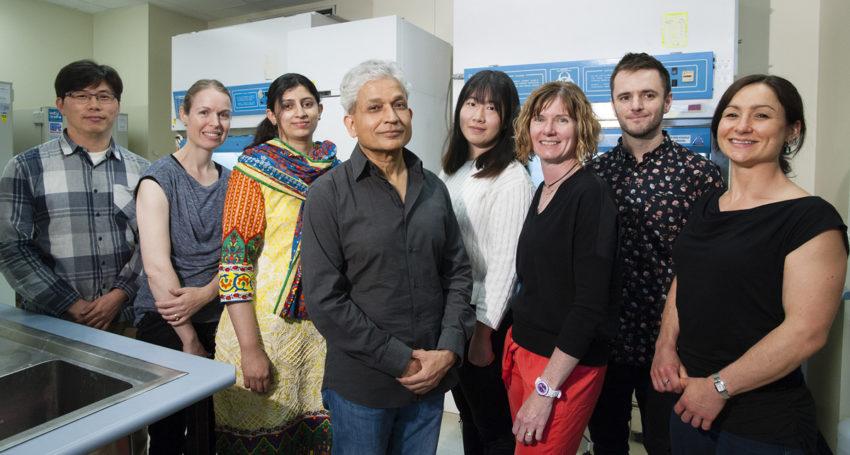Ubiquitin protein could unlock secrets of kidney disease
Health & Medical
A protein known to help control an inherited form of hypertension has also been found to protect the kidneys from salt-induced damage.

Sign up to receive notifications about new stories in this category.
Thank you for subscribing to story notifications.

The discovery could lead to a new way of targeting kidney disease.
Researchers from the Centre for Cancer Biology (CCB) in Adelaide, South Australia, have found that the ubiquitin protein ligase Nedd4-2 protects the kidneys from salt-induced damage by controlling the epithelial sodium channel (ENaC) that is responsible for salt uptake in kidney tubules.
The researchers found that a deficiency of Nedd4-2 in mice caused by gene deletion led to hypertension and also an unexpected increase in kidney injury markers reminiscent of human chronic kidney disease.
Lead researcher Professor Sharad Kumar said it had been known for a number of years that high salt levels could cause hypertension, partly due to increased sodium uptake by ENaC. His group, and others, found many years ago that Nedd4-2 keeps ENaC activity in check. What was surprising in the new study was that increased ENaC activity due to the absence of Nedd4-2 also resulted in progressive kidney disease. Importantly, this disease was reduced simply by blocking ENaC with a known drug, amiloride.
The implications of the finding from South Australia is that medication such as amiloride could potentially reduce the likelihood of kidney damage in some people. Importantly, similar results were also apparent when animals were fed a low salt diet.
“I think we might have found a new link for how high salt and ENaC cause kidney injury through this ubiquitin ligase Nedd4-2,” Prof Kumar said.
“We also have a nice model of disease to work out what sodium is actually doing in the body and how it is doing it.”
Prof Kumar said communicating with clinicians about these findings was the next step.
He said it was likely that reducing salt intake by the implementation of a low-salt diet would also reduce kidney damage in affected patients.
“Reducing salt intake is likely to have an impact on kidney disease. This has long been suspected, but after this study we hope we can get the message out to impact clinical studies,” Prof Kumar said.
The Centre for Cancer Biology is an alliance between the University of South Australia and SA Pathology, which recently moved into the new UniSA building in the world-renowned Adelaide BioMed City health precinct.
The original research was published in December 2017 by the Centre for Cancer Biology team involving Research Fellows Dr Tanya Henshall and Dr Jantina Manning, who have since been studying the impacts of a low salt diet in mice.
“In our studies, we see that a low-salt diet can ameliorate this form of kidney disease and that’s a first,” Dr Manning said.
“We have then discovered that rather than treating this kidney disease with a drug, prescribing a low salt can have the same effect. ”
“Kidney researchers and scientists are using whole genomic sequencing of patients to try to understand genetic causes of kidney disease. We predict that in the future, the ubiquitin ligase gene we study, Nedd4-2, may be added to the list of hot targets that might be causing a lot of these problems in patients.”
Jump to next article




